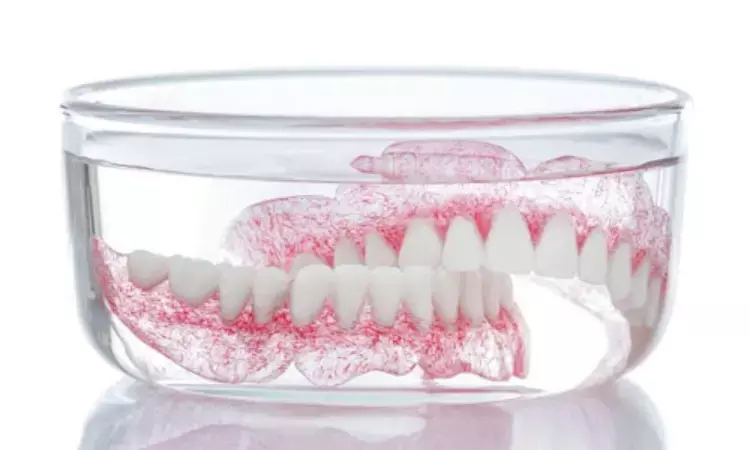- Home
- Medical news & Guidelines
- Anesthesiology
- Cardiology and CTVS
- Critical Care
- Dentistry
- Dermatology
- Diabetes and Endocrinology
- ENT
- Gastroenterology
- Medicine
- Nephrology
- Neurology
- Obstretics-Gynaecology
- Oncology
- Ophthalmology
- Orthopaedics
- Pediatrics-Neonatology
- Psychiatry
- Pulmonology
- Radiology
- Surgery
- Urology
- Laboratory Medicine
- Diet
- Nursing
- Paramedical
- Physiotherapy
- Health news
- Fact Check
- Bone Health Fact Check
- Brain Health Fact Check
- Cancer Related Fact Check
- Child Care Fact Check
- Dental and oral health fact check
- Diabetes and metabolic health fact check
- Diet and Nutrition Fact Check
- Eye and ENT Care Fact Check
- Fitness fact check
- Gut health fact check
- Heart health fact check
- Kidney health fact check
- Medical education fact check
- Men's health fact check
- Respiratory fact check
- Skin and hair care fact check
- Vaccine and Immunization fact check
- Women's health fact check
- AYUSH
- State News
- Andaman and Nicobar Islands
- Andhra Pradesh
- Arunachal Pradesh
- Assam
- Bihar
- Chandigarh
- Chattisgarh
- Dadra and Nagar Haveli
- Daman and Diu
- Delhi
- Goa
- Gujarat
- Haryana
- Himachal Pradesh
- Jammu & Kashmir
- Jharkhand
- Karnataka
- Kerala
- Ladakh
- Lakshadweep
- Madhya Pradesh
- Maharashtra
- Manipur
- Meghalaya
- Mizoram
- Nagaland
- Odisha
- Puducherry
- Punjab
- Rajasthan
- Sikkim
- Tamil Nadu
- Telangana
- Tripura
- Uttar Pradesh
- Uttrakhand
- West Bengal
- Medical Education
- Industry
Denture Cleansers Significantly Affect Color Stability in TiO2-Infused Materials, Study Finds

Iran: A recent study published online in the Journal of Prosthodontics has explored the impact of different denture cleansers on the color stability, surface roughness, and hardness of polymethylmethacrylate (PMMA) infused with titanium dioxide nanoparticles (TiO2 NPs) at concentrations of 1% and 2%. Mina Mohaghegh, Department of Prosthodontics, School of Dentistry, Shiraz University of Medical Sciences, Shiraz, Iran, and colleagues aimed to assess how commonly used denture cleansers, such as Corega and sodium hypochlorite, affect these critical properties over extended periods.
In this in vitro study, 90 disc-shaped specimens of PMMA were divided into three groups based on the concentration of TiO2 NPs: 0wt%, 1wt%, and 2wt%. Each group was further divided into three subgroups, with each subgroup immersed in either distilled water, an oxygenating tablet (Corega), or 0.5% sodium hypochlorite. The specimens were then analyzed for color changes, surface roughness, and hardness values after 90 and 180 days of storage.
The study led to the following findings:
- Denture cleansers had a significant impact on color change in all groups compared to distilled water.
- After 90 days, specimens immersed in sodium hypochlorite exhibited a notably higher color change than those immersed in Corega.
- At the 0wt% concentration, sodium hypochlorite caused the color change to exceed the clinically acceptable threshold (∆E >3.7), indicating significant discoloration.
- The cleansers did not significantly alter the surface roughness of the samples containing TiO2 nanoparticles compared to the distilled water group.
- Immersion in hypochlorite resulted in significantly higher surface roughness for non-TiO2 nanoparticle samples at the 0wt% concentration.
- After 180 days, hypochlorite increased the surface roughness of non-TiO2 nanoparticle samples compared to those containing TiO2 nanoparticles.
Regarding surface hardness, the study found that the cleansers did not cause consistent changes across the different groups. The immersion time had a more substantial effect on surface roughness and hardness than the type of cleanser used. While the color change was notably influenced by the cleanser type, the surface properties, including roughness and hardness, remained relatively stable for TiO2 NP-infused samples.
"Denture cleansers significantly affected the color stability of PMMA containing TiO2 NPs, with sodium hypochlorite showing the most adverse effects. However, the cleansers did not notably alter surface roughness or hardness, particularly in TiO2 NP-infused samples," the researchers wrote.
"These findings suggest that while cleansers can affect the aesthetics of dentures, their impact on the mechanical properties of TiO2 nanoparticle-enhanced materials is less pronounced. Further studies are needed to explore the long-term effects of denture cleansers on these materials," they concluded.
Reference:
Ansarifard, E., Mohaghegh, M., Saadat, M. H., & Taghva, M. (2024). Effect of denture cleansers on color stability and surface properties of denture base material containing titanium dioxide nanoparticles. Journal of Prosthodontics, 34(1), 49-57. https://doi.org/10.1111/jopr.13793
Dr Kamal Kant Kohli-MBBS, DTCD- a chest specialist with more than 30 years of practice and a flair for writing clinical articles, Dr Kamal Kant Kohli joined Medical Dialogues as a Chief Editor of Medical News. Besides writing articles, as an editor, he proofreads and verifies all the medical content published on Medical Dialogues including those coming from journals, studies,medical conferences,guidelines etc. Email: drkohli@medicaldialogues.in. Contact no. 011-43720751


